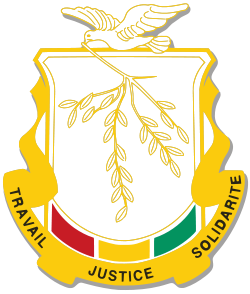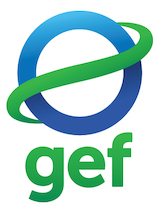Strengthening Livelihoods and Climate-Resilience in the Guinean Prefectures of Gaoual, Koundara and Mali
Project Overview
Agriculture and livestock are the main economic activities in the prefectures of Gaoual, Koundara and Mali. However, while their importance for the economy and community livelihoods is undeniable, agriculture and livestock farming in Gaoual, Koundara and Mali remain of subsistence, dependent entirely on the natural resource potential and characterized by unsustainable environmental practices.The agriculture and livestock production are currently facing several constraints which limit their productivity and render them highly vulnerable to any external shock including climate effects. In these prefectures, the huge expansion of Bowe land reduces the areas of farmable land.
In response to the above challenges, the Government of Guinea, supported by its development partners including UNDP, has developed several initiatives which provide a comprehensive baseline for Strengthening Farmers Communities Livelihoods Resilience Against Climate Changes in the Guinean Prefectures of Gaoual, Koundara and Mali .
Project Details
More details to come...
Key Results and Outputs
Component 1:Local authorities and decentralized institutions strengthened to integrate climate change issues in regional PNDA action plans through local development plans (PLDs), annual and multi-year investments plans (PAIs/MIPs) and annual community budgets (BCAs) of the 15 most vulnerable GKM Rural Development Communities (CRD)
- Output 1.1: 300 GKM CRD councils members, Urban Districts councils members, and decentralized institution staffs are sensitized about climate change risks, trained on how to integrate climate change risks and support the implementation of agroforestry in the implementation of regional PNDA action plans through the PLDs, PAIs and BCAs.
- Output 1.1: Community based land, forest and watershed management plans and regulation tools (custom laws and agreements) are developed and implemented for the enforcement of the agro-hydro-climatic zoning of the Prefectures of GKM developed in the framework of the output 2.1.1 in order to orient agro-sylvo-pastoral activities towards the most appropriate areas and promote the implementation of agroforestry as strategy to adapt to climate changes in the prefectures of Gaoual, Koundara and Mali. These tools will coordinate with the strategic plan of the Guinea-Guinea Bissau trans-boundary Protected Areas developed in the framework of the AGIR project. Indeed, the AGIR project (2000 - 2005) has supported the production of a strategic plan for the management of the Guinea - Guinea Bissau trans-boundary Protected Area (the Guinean section of this trans-boundary PA is located in the prefectures of Gaoual, Koundara and Boke) and which organize the agriculture, livestock and other economic activities in the PA and its surroundings. This outcome will additionally assess and codify the experience and knowledge generated from the application of these custom laws and provided to the decision makers for an improvement of the regulatory framework.
- Output 1.3: Local development plans (PLDs), annual and multi-years investments programmes (PAIs/MIPs) and annual community budgets (BCAs) of the 15 most vulnerable GKM Rural Development Communities (CRD) are updated to integrate climate change risks and dispositions to address the technical, financial, institutional, regulatory, organizational, and other constraints to climate resilient agroforestry scaling-up as adaptation strategies.
Component 2: Agro-meteorological information are produced and disseminated to the most appropriate stakeholders of the prefectures of GKM for climate resilient agroforestry
- Output 2.1: An agro-meteorological action plan is developed and implemented in the 3 prefectures of Gaoual, Koundara and Mali. The action plan will allow to: i) determine the required agro-meteorological information needed for a climate resilient agroforestry; ii) identify the needs for capacity building to obtain the necessary agro-meteorological information; iii) design and organize capacity building for key institutions; iv) organize production and dissemination of priority agro-meteorological information to the appropriate end-users;
- Output 2.2: Local multidisciplinary group for agro-meteorological assistance (LGMAs) in each of the 15 most vulnerable CRDs are established to coordinate the gathering of climatic information as well as the production and dissemination of agro-meteorological information and advisory support. The LGMAs will be made up of local representatives from the DMN, the agricultural, livestock, environment, water resources, fauna and forestry resources ministries, of the community based organizations, local NGOs and other relevant institutions.
- Output 2.3: An agro-hydro-climatic zoning of the prefectures of GKM (vulnerable lands, forests and watercourses, areas for types of crops, for grazing, watercourses for irrigations etc) is elaborated and submitted to local authorities and decentralized institutions to support the elaboration of climate resilient PLDs and PAIs and the promotion of resilient agroforestry strategies.
Component 3: Community livelihood options are made more climate resilient in the 15 most vulnerable CRDs of Gaoual, Koundara and Mali
- Output 3.1: Training package on climate resilient agroforestry is designed and implemented for 1,500 farmers from the 15 most vulnerable CRDs in GKM prefectures. This training programme will firstly start by a training of trainers who will replicate the training to other farmers. This output will also, with the support of the Agriculture research center of Bareng (in Guinea) and other relevant international research center, develop training modules and methodologies that other projects and programmes could use beyond the project life and scope.
- Output 3.2: An advisory support group, made up of the trainers trained as a result of output 3.1, and selected members of the AAGs have established to provide climate resilient agroforestry advice to farmers. This output will also put at the disposal of the local authorities of a strategic document for the maintaining of this advisory group beyond the project life to ensure the sustainability of this service. This strategy will assess the feasibility of the privatization of this service through its inclusion in package of support service provided by the farmers associations to their members and the assessment of their willingness to pay such service.
- Output 3.3: 200 community farms are supported (farmers organization, farm lay-out, acquisition of resilient seeds and tree species, farm running) to implement climate resilient agroforestry technologies in the prefectures of GKM. Additionally, this output, with the support of the research sector in Guinea, will support the assessment and the codification of the experiences and knowledge generated from these community agroforestry farms and their dissemination in Gaoual, Koundara and Mali and beyond the project areas and life.
- Output 3.4: An operational supply chain for the production and diffusion of drought resistant agroforestry inputs (trees, crop seeds and livestock species) is established in Gaoual, Koundara and Mali. This output will support the development of nurseries of climate resilient trees and livestock species, facilitate the acquisition of resilient main staple crop seeds, and the dissemination of these inputs to the farmers of Gaoual, Koundara and Mali.
- Output 3.5: A strategy to support the commercialization of products derived from agroforestry is implemented in the prefectures of Gaoual, Koundara and Mali. This strategy will consist in supporting the organization of agroforestry farmers, the establishment of small units for the conservation and transformation of agroforestry products related to the multifunctional platform project, the implementation of marketing actions and infrastructures, the establishment of a label proper to these agroforestry products, the development of a channel of agroforestry products linking producers to consumers.
As detailed in the 12-7-2011 - Guinea Project Identification Form [attached]
Reports and Publications
Reports and Publications by country teams
Presentation
Newsletter
Monitoring and Evaluation
The implementation of the project's activities will reflect GEF monitoring and evaluation standards and procedures as well as UNDP guidelines on monitoring and evaluation of projects on adaptation policy. Details for monitoring and evaluation will be articulated during the project development phase.


